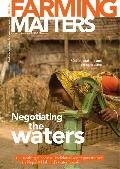New books from Institute of Development Studies, Greenpeace International, Earthscan and others
An upside down view of governance
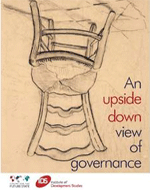
OECD governments spend over €7 billion a year to improve governance – yet for many, governance is a vague concept. This book explains what practitioners know from experience: local power structures matter, and can help or hamper development. It provides practical tips on how to relate between formal and informal governance structures, and shows the importance of being clear and precise in the use of language. Understanding these concepts is particularly important in the agricultural sector, where many traditional arrangements over issues such as water use, can clash with formal forms of governance.
Diet for a hot planet: The climate crisis at the end of your fork and what you can do about it
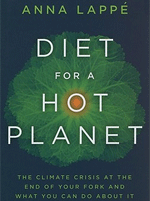
This inspiring and easy-to-read book explores the links between our food systems – from seed to plate to landfill – and climate change. Lappé addresses three questions: Why does our food system play such a significant role in climate change, accounting for over 30 percent of human-induced greenhouse gas emissions? How can food and farming be part of the solution? And, how can people change their diets to become more climate-friendly? She confronts several “myths”, devoting two chapters to the “hunger” and “technology” myths that see industrial agriculture and biotech crops as the only solution for feeding ourselves and saving the planet. Lappé argues against these myths, bringing together evidence that leads her to conclude that agroecological methods are our best option.
Ecological farming: Drought-resistant agriculture
Reyes Tirado and Janet Cotter, 2010. Greenpeace International, Amsterdam. 15 pages.
Downloadable at: http://www.greenpeace.org/international/en/publications/reports
We increasingly hear in the news about extreme weather events, be they floods in Pakistan, forest fires in Russia or droughts in Niger. This short report looks at how farmers can adapt to changing rainfall patterns. It focuses on strategies based on biodiversity and creating a healthy soil. It also reviews the potential of conventional breeding methods, including marker-assisted selection (MAS) to produce drought-resistant crop varieties. The authors conclude that MAS is a better option than genetic engineering, as it is better at selecting complex traits such as drought-resistance, and avoids the risks entailed in artificially transferring genes between organisms. It shows examples of successful conventionally bred drought-resistant maize, wheat and rice.
Dead planet, living planet: Biodiversity and ecosystem restoration for sustainable development
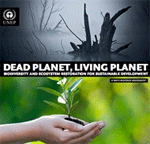
Downloadable at: http://www.grida.no
This beautifully illustrated report, a contribution to the UN’s International Year of Biodiversity, highlights the many benefits that flow from restoring the world’s ecosystems, such as forests and wetlands. It draws attention to the services provided by healthy ecosystems. These extend beyond direct resources, such as food or water, and include services such as climate or water regulation, soil formation and photosynthesis, as well as cultural services. The authors translate these services into monetary figures to show the strong economic benefits of ecosystem services. They also provide thirty case studies of widely-ranging ecosystems that have been successfully restored following disruptions such as agriculture or mining. The report concludes with eleven policy ecommendations.
Negotiate: Reaching agreements over water
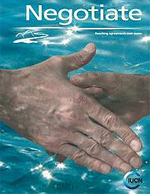
Downloadable at: http://data.iucn.org/dbtw-wpd/edocs/2010-006.pdf
If negotiation is the key to fair, effective and sustainable water management, then the world certainly needs a lot of it. The importance of talking, bargaining, sharing perspectives, searching for solutions and coming to collective decisions, are clearly presented in this book. Examples from around the world show the benefits of a “negotiation approach”, which the authors argue is an indispensable aspect of water governance. Ideas on how to negotiate include taking the four Rs (rewards, risks, rights and responsibilities) into account, as well as “constructive engagements” to help reach a necessary agreement, whether this becomes a contract, law or code of conduct. Policy-makers and practitioners alike will find this an easy-to-read and very interesting book.
Out of the mainstream: Water rights, politics and identity
Rutgerd Boelens, David Getches and Armando Guevara-Gil (eds.), 2010. Earthscan. 366 pages.
This book explores the world of water rights and policy regimes, examining national water policy-making in the light of local “water cultures”. The contributing authors in this academic collection focus mainly on countries in the Andes (especially Peru, Chile, Ecuador and Bolivia), with some experiences from elsewhere in Latin America and the southwest United States. While many new water policies are based on universal, “mainstream” principles and the concept of individual rights, the authors show that legislation does not reflect successful local systems, based on collective rights and practices. This book calls for policy-makers to look more carefully at the valuable context-specific aspects of local water users’ management systems and to move away from setting one-size-fits-all regulations.

